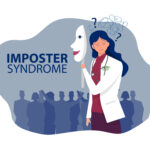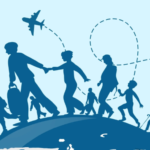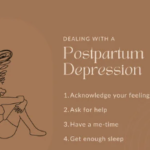As I prepared for a recent flight, I was filled with the usual mix of anticipation and anxiety that accompanies air travel. However, what transpired during that flight made me reflect deeply on a pressing issue: the preparedness of families dealing with autism spectrum disorder (ASD) in unexpected situations, particularly during air travel.
It is no secret that the prevalence of autism is on the rise globally, affecting families across different cultures and backgrounds. In Nigeria, the estimated prevalence rate of autism is around 1 in 100 children, according to a 2020 study published in the Journal of Autism and Developmental Disorders.
Yet, despite this growing awareness, many families remain unprepared for the unique challenges associated with air travel for individuals on the spectrum.
During this flight, I had the opportunity to witness firsthand the struggles of a young adult with autism traveling for the first time. As a medical professional, I have encountered various medical emergencies onboard, but this situation was particularly striking.
The deep psychological stress from the young adult’s parents was evident. They were navigating the turbulence of not just the flight, but also the emotional whirlwind of having a child with ASD.
As we administered both pharmacologic and non-pharmacologic therapies to help the young adult relax, I began to ask the parents about their preparations. One question was particularly important: “Is this the person’s first time traveling by air?” The answer was a definitive yes.
This sparked a series of reflections on the importance of preparation for air travel, especially for individuals with autism.
In retrospect, there were several missed opportunities for the family that could have alleviated some of the stress. When I asked if they had brought along items that typically helped to distract and calm their child during stressful moments, the answer was no.
While my intent was not to blame, it became clear that a lack of planning had contributed to the challenges they faced. This experience highlighted a crucial need for families to engage in thorough preparation before embarking on travel.
Preparing for Air Travel with ASD
The preparation process for families dealing with autism can be broken down into several key areas. First and foremost, effective communication is essential. Informing the individual about the trip in advance can significantly reduce anxiety.
Visual schedules, social stories, and role-playing scenarios can help set clear expectations about what to expect at the airport and during the flight. According to the Autism Society, creating a visual schedule can help individuals on the spectrum manage their anxiety by providing a clear understanding of the day’s events.
Secondly, medication management is vital. Families should ensure they have enough prescribed medication for the duration of the trip. It’s advisable to carry extra doses in case of delays or emergencies.
The National Institute of Mental Health suggests that having a clear plan regarding medication can alleviate stress for both the caregiver and the individual. You can also learn more from the following article: Physical and Mental Health Effects of Family Caregiving.
It’s good to note that non-pharmacological aids are equally important. Items such as noise-canceling headphones, stress balls, fidget toys, and comfort items (like a favorite blanket or stuffed animal) can help soothe anxiety.
These tools provide sensory relief and comfort, allowing individuals with ASD to feel more secure in unfamiliar environments. Parents should consider involving their children in choosing these items to create a sense of ownership and familiarity.
Airline Responsibilities and Accommodations
While families play a crucial role in preparing for air travel, airlines also have a significant responsibility to ensure a comfortable experience for passengers with ASD. Many airlines are beginning to recognize the importance of accommodating individuals with special needs, but there is still much work to be done.
According to the Department of Transportation, airlines may inquire about how a specific seat can facilitate your access to air transportation services. For instance, a child on the autism spectrum might benefit from sitting in a bulkhead seat or another area with extra legroom.
This additional space can be crucial for employing soothing techniques during the flight, helping to create a more comfortable environment for the child if they begin to feel anxious or overwhelmed.
You can read more at Guide: Air Travelers with Developmental Disabilities by the Department Of Transportation, Office Of The Secretary, Washington, DC.
Some airlines have introduced programs that train staff on autism awareness, ensuring they understand the unique challenges faced by passengers with ASD.
For instance, Delta Airlines has implemented an “Autism Awareness Training” program for their employees, aimed at fostering a supportive environment for travelers with autism.
Such initiatives are commendable, but they must become the standard across the industry, particularly in countries like Nigeria where awareness is still developing. It will also be helpful for airlines to consider making modifications to their services like:
- Offering pre-boarding options for families with children on the spectrum, providing quiet spaces in airports,
- and ensuring that trained personnel are available during flights can greatly enhance the travel experience.
There is also a growing call for airlines to have at least one medical professional onboard, especially on long-haul flights, to address any emergencies that may arise.
Advocating for Systemic Change
The need for systemic changes in how airlines accommodate individuals with autism cannot be overstated. Advocacy is crucial in pushing for regulations that mandate better training for airline staff and improved services for passengers with special needs.
Organizations such as Autism Speaks, and the Autism Society have been vocal about the necessity for airlines to create inclusive environments.
In addition, local governments and NGOs can play a pivotal role in raising awareness and advocating better policies. Community engagement is vital; families, medical professionals, and advocacy groups must come together to share their experiences and push for the rights of individuals with autism.
By creating a collective voice, we can influence change and encourage airlines to prioritize the needs of all passengers. In case you are wondering, let me share with you where my motivation comes from about Autism Awareness.
Why I’m Passionate About Autism Awareness
My motivation to support individuals with autism stems from my journey in nursing and public health, as well as my unwavering commitment to humanitarian service.
I began my career as a registered nurse in Nigeria in 2010, where I quickly recognized the critical gaps in healthcare accessibility, particularly for vulnerable populations. After relocating to Canada, I pursued further education, earning my Bachelor of Science in Nursing and a Master’s in Health Administration.
I am currently completing a second master’s in International Public Health, focusing on mental health issues that affect mothers and children.
Founding Matermental was a pivotal moment for me, as it allowed me to tackle the multifaceted challenges that impact people’s well-being. One of my proudest achievements was organizing a dental outreach for children with Autism Spectrum Disorders in Iwo Osun State, Nigeria, where we provided essential health services to over 150 children.
Through this work, I advocate for equitable health policies and culturally sensitive programs, believing that every child deserves access to vital health resources.
My dedication to improving the quality of life for those affected by autism drives me to ensure that they receive the care and support they need to thrive.
Conclusion
Reflecting on my experience during that flight, I am reminded of the resilience of families navigating the challenges of autism. There is hope for a future where air travel is more accessible and accommodating for individuals with ASD.
However, it requires a concerted effort from families, airlines, and communities to make this vision a reality.
By preparing thoroughly, advocating for better services, and fostering understanding within the community, we can create a world where everyone, regardless of their needs, can travel with confidence and dignity.



















